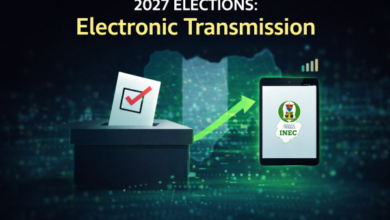Expo 22: Buhari launches national science policy, STI television

President Muhammadu Buhari on Monday in Abuja launched the 2022 Revised National Policy on Science, Technology and Innovation (NSTIP) and also inaugurated the first STI television (STI tv@NG) in Nigeria.
The President performed the ceremonies when he declared open the 2022 edition of the STI Expo, with the theme: “Sustainable National Economic Growth through Science, Technology and Innovation”.
The News Agency of Nigeria (NAN) reports that the President was represented by Dr Ogbonnaya Onu, the Minister of STI.
The President also granted scholarships to three best students who emerged winners of the 774 Young Nigerian Scientists competition from the 36 states of the federation and FCT.
He said that the three best students would study any science subject of their choice in any Nigerian university up to doctorate level, in line with Presidential Executive Order 5.
“The 2022 Revised NSTIP is a document which not only serves as a principal document for the full diversification of the Nigerian Economy.
“It will serve as a lasting legacy to both present and future generations of Nigerians for the promotion of a knowledge economy,’’ he said.
Buhari further said that the STI television would be used for extensive advocacy to inculcate STI as part of everyday life of the country.
He said both projects launched were aimed at job and wealth creation, and will also increase the number of youths and women that would be attracted to STI activities.
READ ALSO:https://brandeconomy.com.ng/naicom-set-to-become-leading-rbs-regulator-in-africa-official/
He explained that the reason the 2022 NSTIP was approved by the Federal Executive Council was because STI had assisted economies of developed countries of the world.
He said his administration would continue to support the annual expo in order to promote research, development and global competitiveness of the country.
Mohammed Abdullahi, Minister of State for STI, said the Federal Government had resolved on massive deployment of indigenous technologies as a strategy to bail out the nation from multiple challenges.
Emmanuella Isopi, representing the European Union, said it was important to empower researchers, innovators and entrepreneurs, to develop solutions to societal problems.
(NAN)












